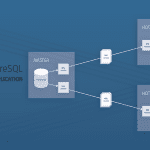Shared MongoDB hosting is one of the most cost-effective and easy-to-setup options for deploying MongoDB in the cloud, and is used by thousands of companies around the world to host their databases. In this post, we outline the top five benefits of using shared MongoDB hosting to help you decide whether it's the right for your business. Shared MongoDB hosting plans are … [Read more...] about Top 5 Benefits of Shared MongoDB Hosting
Technical
Learn all about technical data and programming and why it's crucial for businesses. Get knowledge on how to collect and use this information to improve your products and services.
The How and Why of ID Unification
Identifier (ID) Unification is one of the key data fusion problems to be solved when integrating data from multiple data sources. In the context of enterprises, building a 360 degree view of your customers is a key need. Data from internal sources (first party), external data brokers (third party), various kinds of partners (second party) and open, public sources needs to fused … [Read more...] about The How and Why of ID Unification
Getting Started with PostgreSQL Streaming Replication
In this blog post, we dive into the nuts and bolts of setting up Streaming Replication (SR) in PostgreSQL. Streaming replication is the fundamental building block for achieving high availability in your PostgreSQL hosting, and is produced by running a master-slave configuration. Read the original: Getting Started with PostgreSQL Streaming Replication Master-Slave … [Read more...] about Getting Started with PostgreSQL Streaming Replication
6 Reasons Why Node.js is the Best Framework to Build an eCommerce Marketplace
In this era of digital transformation, every business around the world is rapidly establishing its presence on the Internet. With an online presence, businesses have become capable of being available all the time. What has also increased around the years is the number of e-commerce websites. People like everything delivered to them rather than going outside in the rushes of … [Read more...] about 6 Reasons Why Node.js is the Best Framework to Build an eCommerce Marketplace
3 Ways AI and Digital Technology is Advancing Healthcare
Technological innovations are helping health care providers advance and improve the medical field. Some technologies now permit physicians to diagnose illnesses with 100-percent accuracy. With science and technology, researchers are creating new innovations that are expanding and transforming health care. Innovations such as artificial intelligence (AI) are aiding scientists in … [Read more...] about 3 Ways AI and Digital Technology is Advancing Healthcare
What is technical data?
Technical data can be something as simple as a list of ingredients for a recipe or a more complex set of instructions for assembling a piece of furniture. Technical data can also be mathematical formulas or set points for calibration. No matter what form it takes, technical data is always designed to provide information that will help people to understand and use a particular product or service.
In some cases, technical data may be subject to special regulations, such as those governing the handling of confidential personal information. However, in general, technical data is considered to be publicly available information. Want to learn more about technical data? Datafloq has courses available. Contact us to get started.
What is the purpose of technical data?
Technical data is often used to create engineering drawings or specifications, which are then used to manufacture the product. Technical data can also be used to troubleshoot problems with a product or system.
For example, if a component is not working properly, technicians may refer to the technical data to determine the root cause of the problem. Technical data is an essential part of the product development process and can be very useful for businesses and consumers.
What are examples of technical data?
Technical data refers to the specifications of a product or system, including its performance, dimensions, weight, etc. It is often used in the context of engineering or manufacturing. For example, engineers will consider the vehicle’s weight, aerodynamics, and engine size when designing a new car.
Technical data can also be used to compare different products or systems. For example, if you are trying to decide between two different types of printers, you might look at their printing speed, paper capacity, and resolution.
What is technical data analysis?
Technical data analysis aims to help make better decisions by understanding the data better. Technical data analysis can be used for different purposes, such as predicting future events, identifying trends, or spotting outliers. Many different statistical methods can be used for technical data analysis, and the choice of method will depend on the type of data and the question you are trying to answer.
What is a high-tech startup?
A high-tech startup is a company that uses technology to create new products or services. These startups are usually founded by entrepreneurs with innovative ideas for a new business. Many high-tech startups are based around developing new software or hardware, but some may also focus on creating new medical devices or developing new clean energy technologies.
Whatever their focus, all high-tech startups share a common goal: to bring their innovative ideas to market and create value for their customers.
What is a high-tech business?
A high-tech business is an organization that develops or uses advanced technological processes and products in its operations. Many high-tech businesses are involved in research, development, engineering, and manufacturing. They often work with cutting-edge technologies, such as artificial intelligence, biotechnology, and nanotechnology.
These businesses typically require a highly skilled workforce and substantial investment in research and development. Due to the risky nature of developing new technologies, many high-tech businesses are venture-backed startups. However, some large companies, such as Google and Apple, are also considered high-tech businesses.







